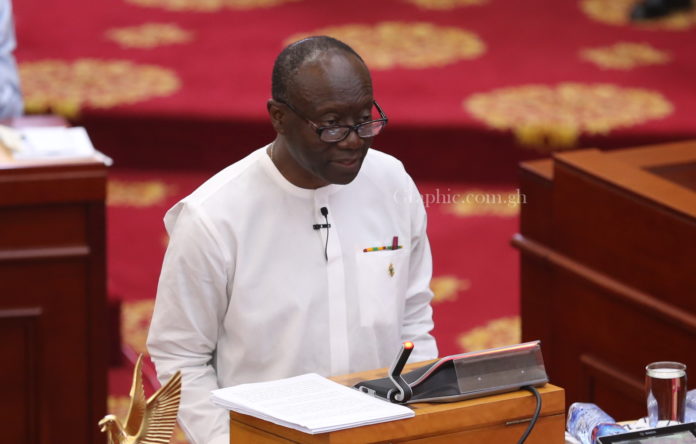Minister of Finance, Ken Ofori Atta has said that due to prudent reforms and effective management decisions in the country’s energy sector, the Akufo-Addo government has helped businesses and households make significant savings as a result of tariff reductions.
Presenting the mid-year budget review for 2018 on the floor of parliament, Ofori Atta said, “Electricity tariffs have been reduced by 17.5 percent to 30 percent for the various customer classes leading to savings of approximately Gh¢1.8 billion per year for businesses and households.”
He added that government was further committed to ensuring stable energy supply for businesses and households so the days of power rationing become a thing of the past.
“In addition, we continue to make significant investments and renegotiate Power Purchasing Agreements (PPA) to avert defaulting on unconscionable financial transactions in the energy sector inherited from the NDC, and also to ensure that we do not go back to the dark days of Dumsor,” he assured.
The minister however lamented low revenues from the sector, as a result of poor revenue collection (2.9% from Energy Sector Levies) and unpaid debts owed by VRA to some of its service providers.
“Inflows from the Energy Sector Levies amounted to GH¢511.1 million against a programmed target of GH¢845.7 million. The short-fall in the performance of the levies is mainly as a result of lower volumes on petroleum products lifted and the lower than estimated recovery of electricity bills,” he said.
“There were no gas receipts in the referenced period due to the Volta River Authority’s (VRA) non-payment for gas supplied it by the GNGC,” he added.
Contrary to speculations and public debate that the mid-year review of the 2018 budget will see the introduction of an increase in Value Added Tax (VAT) from 17.5percent to 21percent, Ken Ofori-Atta announced that there will be no such increments and cautioned against “taking policy direction from social media”.
Rather the review saw the introduction of new taxes on luxury vehicles, a 35percent tax on incomes above GHC 10, 000 and a straight levy of 2.5% on NHIL and GETFund.





